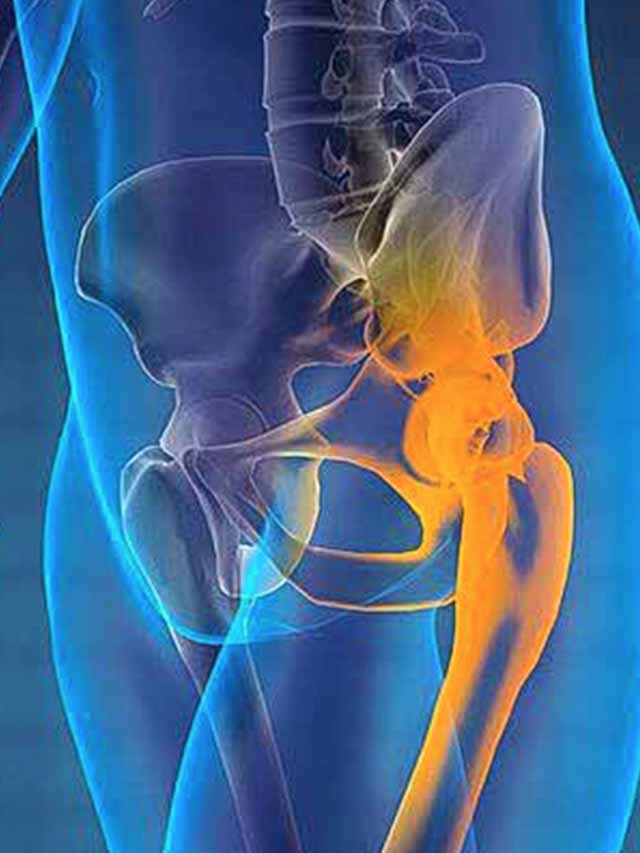HEALTH NEWS
Prostate Cancer Treatment: The Promising Role of CHRM1 Protein as a Therapeutic Target
-
 Rahul Priydarss
Rahul Priydarss - January 25, 2024

T
his article explores the promising role of the CHRM1 protein as a therapeutic target, revolutionizing prostate cancer treatment.
Table of Contents
Introduction:
Prostate cancer remains a significant health concern, affecting millions of men worldwide. In the realm of precision medicine, a groundbreaking discovery has emerged, shedding new light on potential treatments for advanced prostate cancer. This article explores the promising role of the CHRM1 protein as a therapeutic target, revolutionizing prostate cancer treatment.
Understanding Prostate Cancer Treatment:
Before delving into the revolutionary advancements, it’s crucial to comprehend the complexity of prostate cancer. Prostate cancer occurs when abnormal cells in the prostate gland start to grow uncontrollably. While various treatments exist, advanced cases pose significant challenges, necessitating innovative approaches to enhance outcomes.
The CHRM1 Protein Revelation:
Recent research has identified the CHRM1 protein as a key player in advanced prostate cancer. CHRM1, also known as the muscarinic acetylcholine receptor M1, is a cell membrane receptor that plays a crucial role in cell signalling. This discovery has opened up new avenues for targeted therapies, offering hope to patients facing limited treatment options.
“CHRM1 has been known to have a role in promoting prostate cancer growth and progression, but its specific role, function, and mechanism has not been well understood,” explains co-senior author Boyang (Jason) Wu, of the WSU College of Pharmacy and Pharmaceutical Sciences. However, its utility has not been studied in the context of chemotherapy resistance. “In this paper, we have identified it as a potential therapeutic target in chemotherapy resistance prostate cancer.”
Precision Medicine in Action:
Precision medicine involves tailoring treatments based on an individual’s genetic, molecular, and clinical characteristics. The identification of CHRM1 as a therapeutic target exemplifies the power of precision medicine in the fight against advanced prostate cancer. By understanding the specific molecular pathways involved, healthcare professionals can develop targeted therapies that may be more effective and cause fewer side effects than traditional treatments.
Potential Benefits of CHRM1 Targeted Therapies:
- Enhanced Efficacy: Targeting CHRM1 allows for a more precise attack on cancer cells, potentially enhancing the efficacy of treatment.
- Reduced Side Effects: Precision medicine aims to minimize collateral damage to healthy cells, reducing the likelihood and severity of side effects commonly associated with traditional cancer treatments.
- Personalized Treatment Plans: CHRM1-targeted therapies can be tailored to individual patients, considering their unique genetic makeup and the specific characteristics of their cancer.

How CHRM1 Protein Works:
– Based on these findings the team plans to pursue two future directions. One is to see whether this combination can be applied to other types of cancers, like breast and lung, where docetaxel is routinely used. Another line is to test the combination treatment of dicyclomine with other taxol-based chemotherapy drugs.
– In addition to testing resistant cancer cell lines, the research team also tested cells that still responded to docetaxel treatment. They found that using dicyclomine to block CHRM1 in these cells made docetaxel more efficient at killing them. Wu said that this shows that prostate cancer patients could potentially benefit from a combination treatment strategy even before docetaxel resistance develops.
Hope for Advanced Cases:
For individuals facing advanced prostate cancer, where conventional treatments may have shown limited success, the identification of CHRM1 as a therapeutic target brings newfound hope. Clinical trials and research are underway to further validate the efficacy of CHRM1-targeted therapies, with the potential to transform the landscape of prostate cancer treatment.
Challenges and Future Directions:
While the discovery of CHRM1’s role in prostate cancer is promising, challenges remain. Rigorous clinical trials are essential to validate the safety and effectiveness of CHRM1-targeted therapies. Additionally, researchers are exploring combination therapies and understanding the potential resistance mechanisms that may arise.
Suggestion for us:
What this suggests is that the lowest effective dose of docetaxel may be lower when the drug is combined with dicyclomine, compared to when docetaxel is used alone,” Wu said. “Being able to use a lower dose could help reduce unwanted side effects and make treatment more manageable for patients.

-Remember, Always consult with healthcare professionals or Doctors for personalised advice related to medical conditions.
Conclusion:
The identification of the CHRM1 protein as a therapeutic target marks a significant milestone in the quest to revolutionize prostate cancer treatment. Precision medicine, with its focus on individualized care, is paving the way for more effective and targeted therapies. As research progresses and clinical trials unfold, the hope is that CHRM1-targeted treatments will offer new possibilities and improved outcomes for individuals battling advanced prostate cancer. Stay tuned for updates on this exciting frontier in the fight against prostate cancer.
Previous Post





